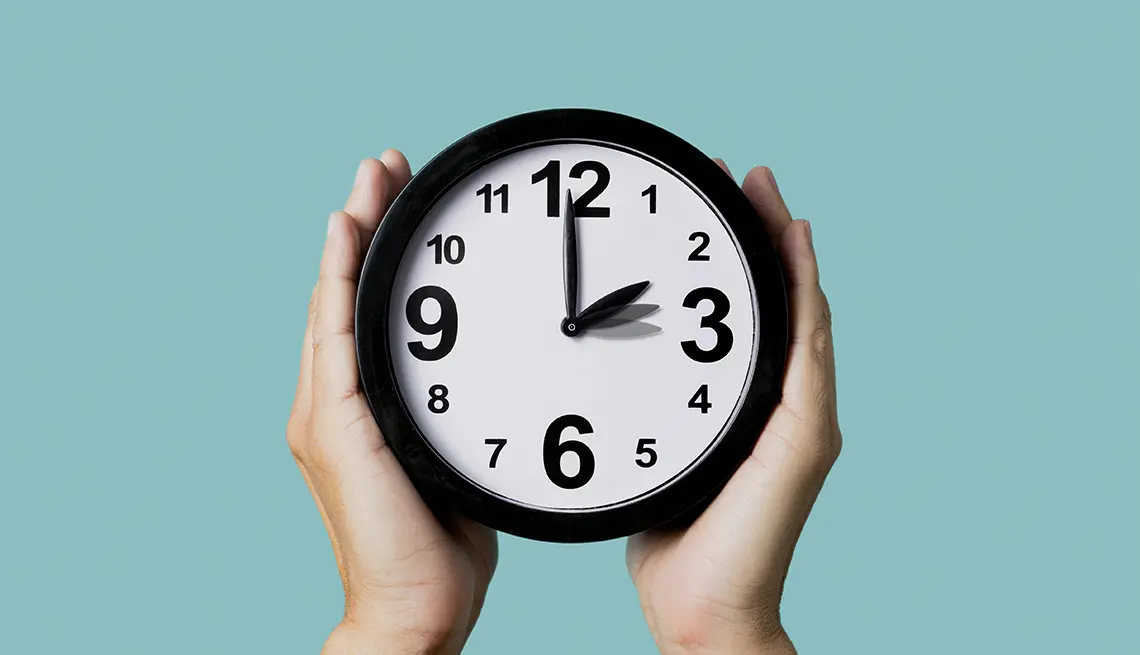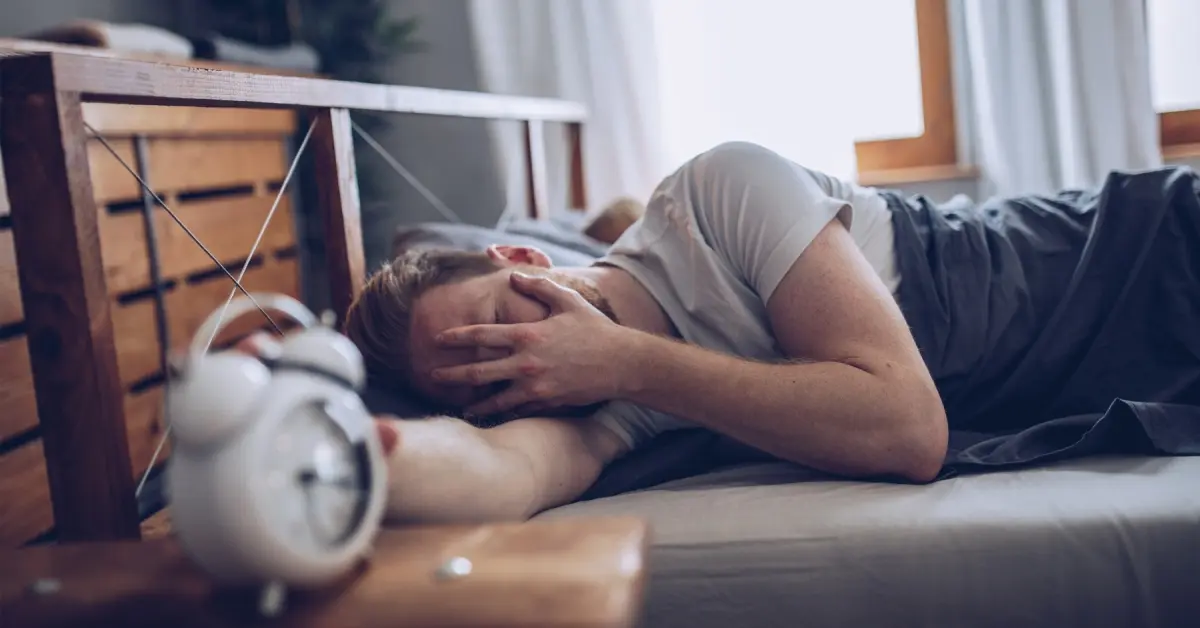Honestly, when do the clocks change? It’s one of those questions that pops up twice a year, isn’t it? One minute you’re happily going about your day, the next you’re wondering if your phone updated automatically or if you’ll be an hour early (or late!) for everything. Trust me, you’re not alone! This question of when do the clocks change seems to catch us all out sometimes.
This whole clock-changing business – switching over to British Summer Time (BST) in spring and back to Greenwich Mean Time (GMT) in autumn – affects every single household in the UK. We’ve been doing this spring forward, fall back routine since way back in 1916! And it’s not just us – around 70 countries fiddle with their clocks (often called Daylight Saving Time or DST elsewhere), although everyone does it slightly differently.
But let’s be real, while an extra hour in bed in autumn sounds great, the shift can mess with your routine, right? It plays havoc with our internal body clocks (that fancy term circadian rhythm!), potentially affecting sleep and just how you feel overall. Understanding when do the clocks change can help you prepare.
So, forget the confusion! Let me walk you through exactly when do the clocks change here in the UK. We’ll cover the dates you need to know, the simple reason why we even bother with this whole process of asking when do the clocks change, and some easy tips to help you sail through the transition without feeling completely out of sorts.
When Do the Clocks Change in the UK?
“Spring forward, fall back” has been part of our calendar for more than 100 years – but whether we should continue the practice is hotly debated.” — Sky News Editorial, Major UK news outlet reporting on national issues
You’ve definitely heard the saying “spring forward, fall back”, right? It’s been around for ages, as Sky News mentions, “but whether we should continue the practice is hotly debated.” Still, for now, it’s the system we have!
Twice a year, everyone in the UK adjusts their clocks. We switch between Greenwich Mean Time (GMT), which is our standard time during winter, and British Summer Time (BST) during the, well, summer! Knowing exactly when do the clocks change helps keep you on schedule and makes the most of those precious daylight hours. It’s key information for planning ahead.
Spring and Autumn Clock Change Dates
It’s actually pretty straightforward once you know the pattern controlling when do the clocks change. The UK clocks always change on the last Sunday of the month:
- Forward (Start of BST): Clocks go forward by 1 hour on the last Sunday in March.
- Back (End of BST / Return to GMT): Clocks go back by 1 hour on the last Sunday in October.
So, for the upcoming changes, mark these dates in your calendar:
- Clocks Go Back 2025: Sunday, 26 October 2025
- Clocks Go Forward 2026: Sunday, 29 March 2026
- Clocks Go Back 2026: Sunday, 25 October 2026
See? Nice and predictable! Keeping track of when do the clocks change is easier when you know the rule.
What Time Do Clocks Change Exactly?
They’ve tried to make it as painless as possible by doing it in the dead of night (or very early morning!).
- Spring Forward: At 1:00 AM GMT on the last Sunday in March, the clock instantly jumps to 2:00 AM BST. Yep, we lose an hour’s sleep (boo!), but we get lighter evenings (yay!).
- Fall Back: At 2:00 AM BST on the last Sunday in October, the clock jumps back to 1:00 AM GMT. Hooray! An extra hour in bed!
Choosing early Sunday morning was a clever move to cause the least fuss for work and school schedules when deciding the exact moment when do the clocks change.
How to Remember: Spring Forward, Fall Back
This little phrase is your best friend for remembering which way the clocks go!
- Spring Forward: In Spring (March), clocks move forward one hour (starting BST).
- Fall Back: In Autumn/Fall (October), clocks move back one hour (returning to GMT).
Did you know? While we call it Autumn, the Americans often say Fall. Apparently, England gave America the word “fall”, and they gave us this handy reminder for the clock changes in return! Fair swap, I reckon! It certainly helps remember when do the clocks change and which way they go.
So, British Summer Time (BST) officially starts with that spring change and runs right through until the clocks go back in October. It’s all about enjoying that extra bit of daylight in the evenings.
Why Do We Change the Clocks?
It’s funny, isn’t it? Millions of us across the UK dutifully change our clocks twice a year, but how many of us actually know why? Let me tell you, the story behind it all, starting with saving fuel in wartime, is actually pretty fascinating! It really helps understand why we stick with this slightly odd tradition and still need to know when do the clocks change.
The Original Reason: Wartime Savings!
Believe it or not, messing with time started as a clever wartime trick! Back in 1916, during the First World War, Germany kicked things off. The UK jumped on board just weeks later. What was the big idea? Simple: saving precious coal. By shifting daylight hours into the evening during summer, people wouldn’t need to use as much artificial light. Honestly, during wartime, every bit of saved fuel counted!
We took it even further during World War II! Get this – between 1941 and 1945, the UK ran on “British Double Summer Time” (BDST), putting clocks a whole two hours ahead of GMT in summer. Even in winter, clocks stayed one hour ahead to help boost wartime production. Imagine how confusing that must have been when trying to figure out when do the clocks change back then!
Who Came Up With British Summer Time?
Okay, so while Benjamin Franklin apparently joked about saving candles way back in 1784, the real champion for BST in Britain was a builder named William Willett. This chap loved riding his horse early in the morning. He kept noticing that loads of houses still had their blinds shut tight, even when the sun was blazing! What a waste of daylight, he thought!
He was so passionate about it, he even published a pamphlet in 1907 called “The Waste of Daylight”. His original plan was a bit fiddly – suggesting changing clocks by 20 minutes over four Sundays in April and then reversing it in September. Wow! Thankfully, it got simplified later.
Even though big names like Winston Churchill backed the idea, poor Willett never saw it happen. The Summer Time Act finally passed in 1916, just a year after he died. His campaign is the reason we ask when do the clocks change today.
Why We Still Do It: Making the Most of Daylight
So, why keep doing it today? Well, it’s not just about saving energy anymore (though that’s still debated!). That extra hour of daylight in the summer evenings is brilliant, isn’t it? It gives us more time for walks, playing outdoors, or just enjoying the garden after work.
And here’s something amazing: during an experiment between 1968-1971 when the UK stayed on BST all year round, there were about 2,500 fewer deaths and serious injuries from accidents during the darker winter months, likely thanks to the lighter evenings. Incredible!
Businesses often love the change too. Shops, restaurants, and tourist spots tend to do better when people have more daylight to be out and about. It makes sense – you’re more likely to pop out if it’s still light! In fact, a YouGov poll in 2019 found 59% of Brits actually wanted BST all year round.
So, while the debate about whether we should keep adjusting when do the clocks change continues, there are still some strong arguments for making the most of that summer sun! It certainly feels like it signals a real shift in the seasons, reminding us to perhaps get those garden jobs done or even check our homes are ready – maybe it’s time to think about how to bleed a radiator before the heating season really kicks in later in the year? Knowing when do the clocks change helps plan these seasonal tasks.
How to Prepare for the Clock Change

Image Source: AARP
Right then, let’s get ready! Knowing when do the clocks change is one thing, but actually preparing for it can make the whole switcheroo way less painful. Trust me, a few simple steps beforehand can help you (and your body!) adjust smoothly, keeping your routine humming along nicely.
Gently Tweak Your Sleep Schedule
Now, don’t just suddenly change your sleep time by a whole hour – your body won’t thank you for it! Sleep experts reckon it’s much better to ease into it.
Try shifting your bedtime by just 15-20 minutes each day for a few days leading up to the day when do the clocks change. So, if the clocks are going forward (spring), nudge bedtime 15 mins earlier each night for about four nights. If they’re going back (autumn), do the opposite – stay up 15 mins later each night.
Honestly, this gentle approach gives your body’s natural rhythm a chance to catch up, meaning less grogginess. Easy peasy! Preparing your sleep is vital when considering when do the clocks change.
Don’t Forget Your Manual Clocks & Gadgets!
Your smartphone and laptop are usually clever enough to sort themselves out. Brilliant! But what about everything else? You’ll likely need to manually change the time on:
- Good old analogue clocks and watches
- Your bedside alarm clock (crucial!)
- The clock in your car (especially older ones!)
- Some central heating controls or hot water timers
- Your oven and microwave clocks
- Any other older timers you might use
Now, here’s a shocker – forgetting to reset things like your heating timer could actually bump up your energy bills! Some estimates suggest it could add £120-£200 a year if your heating is running when it shouldn’t be. Ouch! Getting those timers right is definitely worth a few minutes, maybe even while you’re thinking about other seasonal jobs like checking how to descale a kettle or making sure your radiators are ready with a quick check on how to bleed a radiator. Remember this step when do the clocks change.
Check Work and Travel Times
Got plans for the Sunday when do the clocks change? Double-check those times! If you work shifts, especially night shifts, make sure you know how the change affects your hours.
And if you’re dealing with international travel or online meetings, remember that other countries change their clocks on different dates (or not at all!). Always best to confirm timings for anything important happening around the changeover day.
Tips for Parents: Helping Little Ones Adjust
Kids, bless ’em, can really feel the time change. Their little body clocks don’t care about BST! The gradual approach works best here too. Try shifting bedtime and wake-up time by just 10-15 minutes each day before when do the clocks change.
Keeping a consistent, calming bedtime routine really helps signal it’s sleepy time. And if brighter evenings (or mornings) are causing issues, blackout curtains can be an absolute lifesaver!
Most importantly? Be patient! It might take about a week for your little ones to fully settle into the new schedule. You’ve got this!
What to Expect After the Change

Image Source: Johns Hopkins Bloomberg School of Public Health – Johns Hopkins …
Okay, so the clocks have changed. Now what? Let’s be honest, it’s not just about remembering the new time. This shift can genuinely knock you sideways for a bit, affecting your sleep, your mood, and just how you function day-to-day. Knowing what might happen when do the clocks change makes it easier to deal with.
“The two golden rules of napping are it needs to be under an hour, so between 20 minutes and 60 minutes, and the nap needs to end six hours before you intend to go to bed again,” he explained. — Charlie Morley, Sleep and dream researcher
The Hit on Sleep and Mood
Right, the most obvious one – sleep! That first Monday after the clocks “spring forward” can be rough. Research actually shows people lose about 40 minutes of sleep on average. Annoying, right? But it gets more serious.
Did you know heart attack risks apparently jump by 24% on the Monday after the spring clock change? And stroke risks go up by 8% in the following two days. Wow! It really shows how much that lost hour impacts our bodies, right around the time when do the clocks change.
It’s not just physical, either. Your mood can take a dip. People already dealing with mental health issues might find it tougher as their body clock gets confused. Some studies even suggest an 11% increase in depressive episodes after the clocks go back in autumn. Plus, less sunlight in the morning during spring BST can mess with your serotonin levels, leaving you feeling a bit flat.
How it Shakes Up Your Daily Routine
Ever feel like you’re walking through treacle the day after the clocks change? That brain fog is real! When your body clock is out of sync, it can be harder to think clearly or make decisions.
Sadly, this impacts things outside your head too. Work productivity often drops, and unbelievably, the number of serious car accidents increases by about 6% in the week after the spring forward! Scary stuff, and something to be mindful of when do the clocks change.
Kids and teenagers often feel it even more. They might be sleepier in class, react slower, and struggle to pay attention, which can temporarily affect their learning.
Common Issues and How to Cope
Okay, don’t panic! The good news is that most people adjust within about a week. And there are things you can do to help yourself feel better faster. Here are some science-backed tips:
- Soak Up Morning Light: Get outside for 15 minutes soon after you wake up. Sunlight helps reset that internal clock.
- Nap Smartly: If you need a nap, keep it short (under 20 mins ideally, definitely under an hour!) and make sure it’s finished at least six hours before your proper bedtime.
- Schedule Wisely: If you can, maybe avoid scheduling massive meetings or really important decisions for the first couple of days after the change. Give your brain a chance!
- Ease Off Stimulants: Cutting back on coffee and booze can help, as they can mess with your already confused sleep pattern.
Your body will get used to it, but it might take a few days. Be kind to yourself, especially if you already have health issues or find sleep tricky. Maybe ensuring your bedroom environment is comfortable could help too – perhaps check if you need one of the best UK dehumidifiers if dampness is affecting your sleep space? It’s all part of adjusting when do the clocks change.
Wrapping It Up: Clock Changes Sorted!
So there we have it! That twice-yearly ritual of figuring out when do the clocks change really does weave its way into our lives here in the UK, doesn’t it? From its surprising wartime beginnings to the way it affects our sleep, mood, and daily buzz, it’s more than just shifting an hour back or forth. Understanding when do the clocks change helps manage these effects.
Let’s be honest, it’s a bit of a mixed bag. That potential for feeling groggy or facing slightly higher health risks for a day or two isn’t ideal. But, as we’ve seen, being prepared makes a massive difference! Easing into the time shift, remembering to update those manual clocks (especially the heating timer!), and being a bit patient with ourselves and the kids really helps smooth things over.
Remember, your body is pretty amazing and usually gets back on track within a week. Just keep that handy phrase “spring forward, fall back” in mind!
Make sure you pop the next key dates on your calendar – back on Sunday, 26 October 2025, and forward again on Sunday, 29 March 2026. Knowing what’s coming and having a simple plan means you can handle these time changes like a pro and keep life running smoothly all year round. You’ve totally got this! You’re now an expert on when do the clocks change!
Your Clock Change Questions Answered (FAQs)
Got a few more niggling questions about when do the clocks change? No worries, let’s clear them up!
Q1. When exactly do the clocks change in the UK for 2025/2026?
Okay, mark these down! In 2025, clocks go back 1 hour on Sunday, 26 October. In 2026, they go forward 1 hour on Sunday, 29 March, and then back 1 hour on Sunday, 25 October. Remember, it’s always the last Sunday of March (forward) and October (back)! This schedule dictates when do the clocks change.
Q2. What time does the change actually happen?
It happens super early to cause less disruption! In spring (March), at 1:00 AM GMT, time jumps forward to 2:00 AM BST. In autumn (October), at 2:00 AM BST, time jumps back to 1:00 AM GMT.
Q3. Help! How do I remember which way the clocks go?
Easy! Just think: “Spring forward, fall back“. In Spring, clocks jump forward. In Autumn (Fall), they fall back. Simple but it works! It’s the easiest way to track when do the clocks change direction.
Q4. Remind me again, why do we even do this in the UK?
Good question! It started back in wartime to save energy. Nowadays, the main idea is to make better use of daylight in the summer evenings – great for outdoor activities after work! Some studies also suggest it might reduce accidents in winter evenings.
Q5. What are the best ways to prepare for the clock change?
The best thing is to ease into it! Try adjusting your sleep schedule by 15-20 minutes each day for a few days beforehand. Don’t forget to change manual clocks on ovens, cars, and heating timers! Check your schedules for that Sunday, and give kids about a week to adjust fully – patience is key! Good preparation is essential for when do the clocks change.



